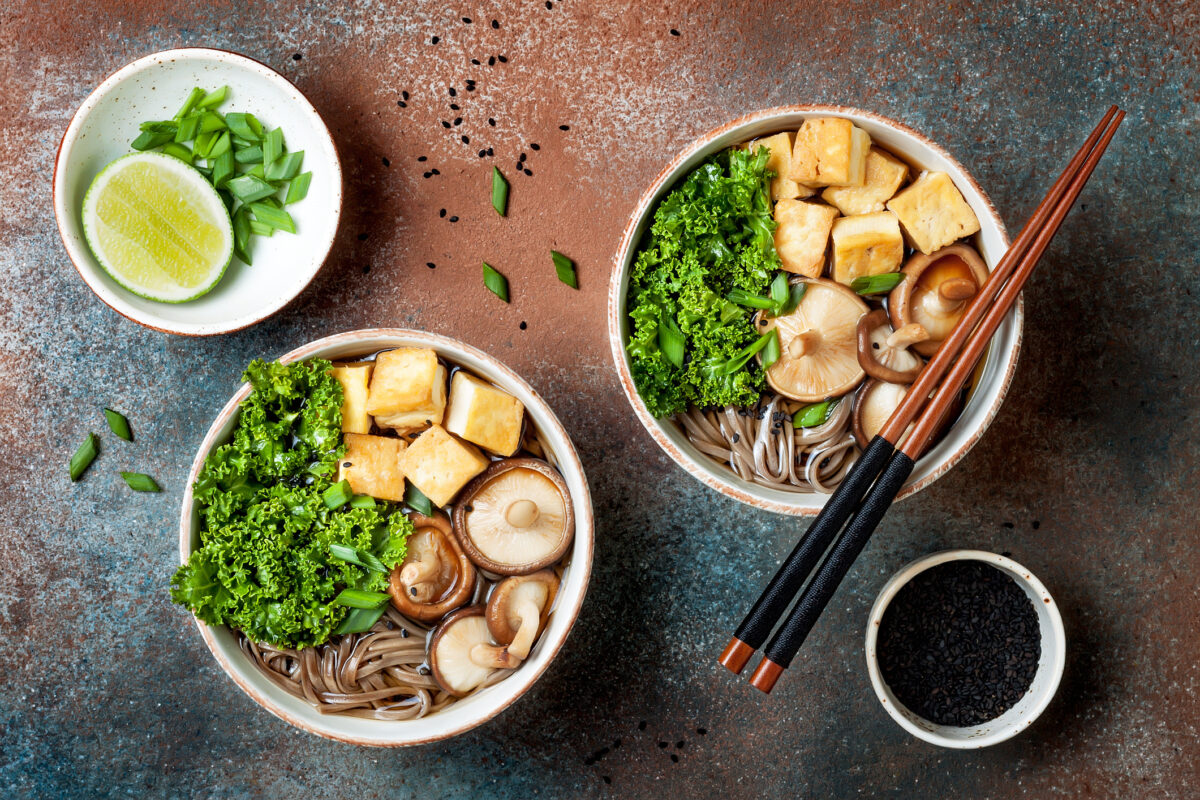The 9 best plant-based, non-dairy milk alternatives explained

Cow’s milk has been considered a staple addition to many people’s diets for years. It can be consumed directly as a beverage, poured onto cereal, added into smoothies for a creamy and rich texture, or put into your tea or coffee.
While cow’s milk is still an extremely favoured choice, non-dairy milk alternatives have grown exponentially in popularity in recent years. Many people choose these non-dairy milk alternatives due to personal preferences, such as being vegan, environmental reasons, dietary restrictions, allergies, or lactose intolerances.
Thankfully, due in part to the recent boom in popularity of non-dairy milk, there is a huge variety of dairy-free milk available in your local supermarket. This article lists some of the best alternative milk options on the market for you to try if you haven’t already. Who knows, you may find an option that you prefer over cow’s milk!
Why would I want non-dairy milk instead of the real thing?
We know that cow’s milk boasts a very impressive nutrient profile, and it can be hard to beat that authentic creamy texture and mouthfeel that comes from dairy milk. In fact, cow’s milk is rich in quality proteins and important vitamins and minerals such as calcium, phosphorus, and B vitamins – one 240ml serving of whole cow’s milk provides around 146 calories, 8 grams of fat, 8 grams of protein, and 13 grams of carbohydrates.
So, considering all of these benefits, why would you even want to make the switch to plant-based milk? Cow’s milk is actually not a great option for everyone, and there are quite a wide range of reasons people want something that’s like milk but isn’t actually dairy. These include:
- Milk allergies:
Up to 3% of children are allergic to cow’s milk, and this allergy can cause a range of symptoms from minor to severe. These include rashes, vomiting, diarrhoea, and even severe anaphylaxis. About 80% of children with an allergy to cow’s milk will outgrow this by the age of 16, but it can persist into adulthood. - Lactose intolerance:
Did you know that an estimated 75% of the world’s population is intolerant to lactose? Lactose is the sugar found in milk, and the condition is caused by a deficiency of lactase, the enzyme which digests lactose, in the body. - Dietary restrictions:
Many people choose to restrict, or completely exclude, cow’s milk and other animal products from their diets for ethical or health reasons. For example, vegans will exclude all animal-based products from their diets, including cow’s milk. - Environmental reasons:
Did you know that the production of cow’s milk has significantly higher environmental impacts than its vegan milk alternatives?
The farming of cow’s milk produces around three times as much greenhouse gas emissions, uses ten times as much land, and uses up to twenty times as much freshwater than dairy-free milk alternatives across all metrics.
Many people choose to eliminate cow’s milk from their diet due to these environmental impacts.
Thankfully, there’s a huge range of options available for people who are looking for alternatives to cow’s milk. Below, we describe the best plant-based milk alternatives on the market and what makes them so good.
Oat milk
In its most simple form, oat milk is formed from a mixture of oats and water. Some manufacturers add extra ingredients in order to produce a more desirable and convincing taste and texture, such as gums, oils, and salt, and others even remove the natural sugars from the oats themselves in order to create an even healthier version of the milk.
A 100ml serving of unsweetened oat milk contains around 40kcal, 1.5 grams of fat, 0.2 grams of protein, and 5.6 grams of carbohydrates. Oat milk is also high in fibre and beta-glucan, a fibre that forms a gel in the gut which helps to reduce cholesterol levels in the body. Beta-glucan has also been shown to help increase feelings of fullness and lower blood sugar levels after a meal.
As oat milk is naturally sweet with a mild flavour, it can be used in cooking and baking in a similar way to cow’s milk – even forming a convincing replacement for cereal and smoothies. One of our favourite uses for oat milk is in coffee, as it helps to create a texture that is surprisingly creamier and thicker than cow’s milk – delicious!
Almond milk
Almond milk, which can be made with whole almonds or a mixture of almond butter and water, has a light texture and a slightly sweet and nutty flavour. Similarly to oat milk, it can be used as an excellent substitute in tea and coffee, or as a replacement in desserts and cooking.
Compared to cow’s milk, unsweetened almond milk typically contains less than a quarter of the calories and less than half the fat content. However, it does have significantly less protein and carbohydrates. For every 100ml serving, you can expect 13kcal, 1.1 grams of fat, 0 grams of carbohydrates and sugars, and 120mg of calcium.
As this is one of the lowest-calorie options available, it is a great option for those who wish to lower the number of calories they consume whilst following a non-dairy diet. However, almond milk has a less concentrated content of beneficial nutrients found in whole almonds, such as protein, fibre, and healthy fats, as it is made from mostly water.
Naturally, if you have a nut allergy, steer clear of any milk alternatives that derive from nuts.
Soy milk
Made from either soybeans or soy protein isolate with added thickeners and oils for taste and texture, soy milk typically has a mild and creamy texture which is an ideal substitute for dairy in savoury cooking, in coffee, or atop cereal.
Per 100ml of unsweetened soy milk, you’ll find 32kcal, 1.9 grams of fat, 3.3 grams of protein, and 0 carbohydrates. Soy milk is a good substitute for cow’s milk due to the fact it has a similar protein content, but far fewer calories, carbs, and fats. It is also one of the few plant-based sources of high-quality complete proteins which provide essential amino acids – acids which cannot be produced by the body and therefore must come from your diet.
Unfortunately, soy milk is not recommended for people who have an intolerance to fermentable oligosaccharides, disaccharides, monosaccharides and polyols (FODMAP) foods. FODMAPs are a kind of short-chain carbohydrate which presents itself naturally in some foods and can cause digestive issues in people who have intolerances.
Coconut milk
Coconut milk is derived from the flesh of brown coconuts and water. Not to be confused with the concentrated version which is sold in cans and used for cooking, the diluted coconut milk for drinking has a creamy texture with a subtly sweet coconut flavour.
A 100ml serving of unsweetened coconut milk will contain 14kcal, 1.2 grams of fat, 0 carbs, and 120mg of calcium. However, it has almost no fibre or protein content. In fact, coconut milk has the least protein content of the non-dairy milk options available in your supermarket, and it is not the best vegan milk option for those who need to increase their protein intake.
Although the nutritional benefits of coconut milk are lacking, it does make for a fantastic alternative in hot chocolates, low-calorie cocktails that require milk, or as a tropical twist in granola, cereal, and smoothies.
Rice milk
Rice milk is derived from milled white or brown rice and water. As with many other non-dairy milk alternatives, rice milk also typically contains thickeners and other additives that help to improve texture and taste.
Interestingly, rice milk is the least allergenic of all plant-based milk alternatives, making this a particularly safe option for those with allergies or intolerances to dairy, gluten, soy, or nuts.
With a more mild flavour and some natural sweetness, rice milk has a consistency that is slightly watery which makes this great to use for smoothies and to add to certain desserts.
For every 100 ml of rice milk, there’s about 47kcal, 1 gram of fat, 9.5 grams of carbohydrates, and a high calcium content of 120mg. Compared to cow’s milk, rice milk has almost double the number of carbs and considerably less protein and fat.
Rice milk also has a rather high glycemic index (GI) of 79–92, meaning that it is absorbed quickly in the gut and causes a rapid increase in blood sugar levels. For this reason, we recommend that people with diabetes avoid this option to remain safe.
Cashew milk
Cashew milk is typically made from a mixture of cashew nuts and water, or cashew butter and water. Cashew milk is a rich and creamy milk alternative that has a sweet, yet subtle, nutty flavour – meaning that it is a fantastic alternative for coffee, desserts, and even in smoothies.
In a similar fashion to many nut-based milks, the pulp is strained from the milk; meaning that you will miss out on the fibre, protein, vitamins and minerals from the whole cashew nut.
For every 100 ml of cashew milk, you’ll find around 23kcal, 1.1 grams of fat, 2.6 grams of carbohydrates which is mostly from sugars, and a wide range of vitamins and minerals at good levels. Unfortunately, cashew milk has pretty low levels of protein so it may be worth switching to plant-based milk with higher protein content, such as soy or oat, in order to meet your daily protein requirements.
Macadamia milk
Macadamia milk is a fairly new addition to the market. It is made primarily of water, with only 3% of the milk being derived from macadamia nuts. Furthermore, most brands are actually made in Australia using Australian-grown macadamia nuts. This plant-based milk variant has an even richer, smoother, and creamier flavour compared to most non-dairy milk options, and is great in coffee; or even on its own.
One 120ml serving of macadamia milk contains about 25-30kcal, 2-3 grams of fat, and up to 5 grams of protein. It also contains a third of the calories and half of the fat found in cow’s milk, making it a relatively healthy option. Furthermore, macadamia milk is a fantastic source of healthy monounsaturated fats, which may help to reduce cholesterol levels and blood pressure, with 3.8 grams per cup (240 ml).
Hemp milk
Hemp milk is derived from the seeds of the hemp plant Cannabis Sativa, the same strand which is used to make cannabis; or marijuana. Unlike marijuana, however, hemp seeds only contain trace amounts of tetrahydrocannabinol (THC), which is the chemical responsible for the effects marijuana is primarily recognised for.
Hemp milk has a vaguely sweet and nutty taste, however, it has a rather thin and watery texture; meaning it works best as a substitute for skimmed milk and other lighter kinds of milk. Around 240ml of hemp milk can contain between 60-80kcal, 4.5-8 grams of fat, 2-3 grams of protein and 0-1 gram of carbs.
It is a good option for vegans and vegetarians, since one glass provides 2-3 grams of high quality, complete protein, with all the essential amino acids to remain healthy. Furthermore, unsweetened hemp milk has a very low content of carbohydrates, making it a great option for anyone wishing to minimise their intake of carbs.
Quinoa milk
Quinoa milk is made from a mixture of about 90-95% water and 5-10% quinoa. Because quinoa is very nutritious, gluten-free, and rich in quality protein, quinoa milk has a very well-balanced nutrition profile compared to other alternative milks.
Quinoa milk is fairly low in fat and even contains moderate levels of protein, calories and carbs – making this a good option for complete plant-based protein for vegans and vegetarians.
A 240ml serving contains 70 calories, 1 gram of fat, 2 grams of protein and 12 grams of carbohydrates – a similar number of carbs to cow’s milk, but significantly less fat and protein.
Due to the popularity of quinoa, as it is touted as a superfood, it can be harder to find on supermarket shelves and can be more expensive than its counterparts. Because quinoa milk has a slightly sweet and nutty taste alongside the distinct quinoa flavour, this option works best poured onto cereal and in warm porridge.
What you should know about non-dairy milk
Although cow’s milk is a staple part of many people’s diets, there are a huge number of reasons why someone may choose to eliminate cow’s milk from their diet. These can range from allergies and ethical reasons to health concerns, but, whatever someone’s choices may be, there are loads of options out there for people who want dairy-free alternatives.
This article listed some of our favourite plant-based milk alternatives, but this is by no means a full list of every option out there. There may be some other choices made from ingredients that you wouldn’t expect, such as hazelnuts and even potatoes!
Something to keep in mind when choosing your plant-based milk alternative is that choosing unsweetened varieties where possible will help you to avoid added sugars within the product itself. Also, choosing a milk alternative that has been fortified with additional vitamins and minerals, like vitamin B12 and calcium, is always beneficial.
While there is no one milk that is perfect for everyone, choosing plant-based milk that works for you in terms of taste, nutrition, and, most importantly, cost, is key – and these points can vary from brand to brand and supermarket to supermarket.








